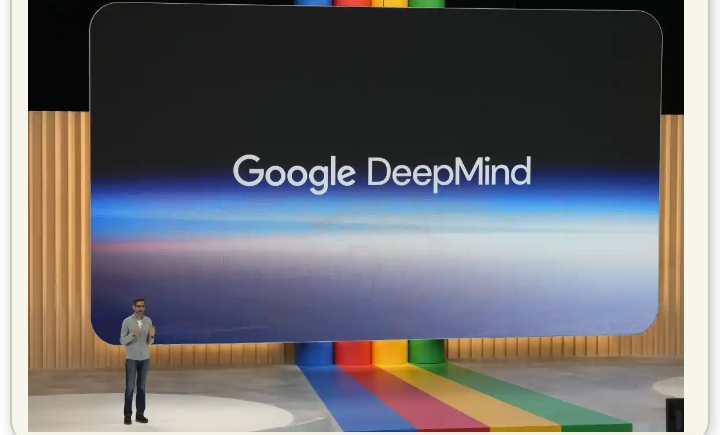
Google took another step forward in artificial intelligence on Wednesday with the announcement of Project Gemini, an AI model programmed to behave in human-like ways, which is certain to fuel debate about the technology’s potential benefits and drawbacks.
The distribution will happen in stages, with less complex versions of Gemini termed “Nano” and “Pro” being incorporated into Google’s AI-powered chatbot Bard and its Pixel 8 Pro smartphone right now.
Google promises that with Gemini’s assistance, Bard will become more intuitive and adept at tasks requiring preparation. According to Google, Gemini on the Pixel 8 Pro will be able to swiftly summarise recordings made on the device and deliver automatic replies on messaging platforms, beginning with WhatsApp.
Gemini’s most significant advancements will not arrive until early next year, when its Ultra model will be utilised to create “Bard Advanced,” a beefed-up version of the chatbot that will initially be available exclusively to a test audience.
The AI will initially only work in English around the world, but Google executives promised reporters during a conference that the technology will eventually be able to work in other languages.
According to a Gemini demonstration for a group of reporters, Google’s “Bard Advanced” may be capable of unparalleled AI multitasking by recognising and interpreting presentations comprising text, images, and video.
Gemini will also eventually be integrated into Google’s dominant search engine, though the exact timing has yet to be determined.
“This is a significant milestone in the development of AI, and the start of a new era for us at Google,” declared Demis Hassabis, CEO of Google DeepMind, the AI division behind Gemini. Google prevailed over other bidders, including Facebook parent Meta, to acquire London-based DeepMind nearly a decade ago, and since melded it with its “Brain” division to focus on Gemini’s development.
The technology’s problem-solving skills are being touted by Google as being especially adept in math and physics, fueling hopes among AI optimists that it may lead to scientific breakthroughs that improve life for humans.
But an opposing side of the AI debate worries about the technology eventually eclipsing human intelligence, resulting in the loss of millions of jobs and perhaps even more destructive behavior, such as amplifying misinformation or triggering the deployment of nuclear weapons.
“We’re approaching this work boldly and responsibly,” Google CEO Sundar Pichai wrote in a blog post. “That means being ambitious in our research and pursuing the capabilities that will bring enormous benefits to people and society, while building in safeguards and working collaboratively with governments and experts to address risks as AI becomes more capable.”
Gemini’s arrival is likely to up the ante in an AI competition that has been escalating for the past year, with San Francisco startup OpenAI and long-time industry rival Microsoft.
Backed by Microsoft’s financial muscle and computing power, OpenAI was already deep into developing its most advanced AI model, GPT-4, when it released the free ChatGPT tool late last year. That AI-fueled chatbot rocketed to global fame, bringing buzz to the commercial promise of generative AI and pressuring Google to push out Bard in response.
Just as Bard was arriving on the scene, OpenAI released GPT-4 in March and has since been building in new capabilities aimed at consumers and business customers, including a feature unveiled in November that enables the chatbot to analyze images. It’s been competing for business against other rival AI startups such as Anthropic and even its partner, Microsoft, which has exclusive rights to OpenAI’s technology in exchange for the billions of dollars that it has poured into the startup.
The alliance so far has been a boon for Microsoft, which has seen its market value climb by more than 50% so far this year, primarily because of investors’ belief that AI will turn into a gold mine for the tech industry. Google’s corporate parent, Alphabet, also has been riding the same wave with its market value rising more than $500 billion, or about 45%, so far this year. Despite the anticipation surrounding Gemini in recent months, its launch barely budged Alphabet’s stock in Wednesday’s morning trading.
Microsoft’s increased involvement in OpenAI over the last year, combined with OpenAI’s more aggressive commercialization efforts, has generated fears that the non-profit has veered from its core aim of protecting humans as technology advances.
Those concerns were heightened last month when OpenAI’s board abruptly ousted CEO Sam Altman in a fight over unknown trust difficulties. Following a reaction that threatened to damage the firm and result in a major migration of AI engineering talent to Microsoft, OpenAI reinstated Altman as CEO and restructured its board of directors.
With the release of Gemini, OpenAI may find itself attempting to demonstrate that its technology is still smarter than Google’s.
“I am in awe of what it’s capable of,” Google DeepMind vice president of product Eli Collins said of Gemini.
In a virtual press conference, Google declined to share Gemini’s parameter count — one but not the only measure of a model’s complexity. A white paper released Wednesday outlined the most capable version of Gemini outperforming GPT-4 on multiple-choice exams, grade-school math and other benchmarks, but acknowledged ongoing struggles in getting AI models to achieve higher-level reasoning skills.
Some computer scientists see limits in how much can be done with large language models, which work by repeatedly predicting the next word in a sentence and are prone to making up errors known as hallucinations.
“We made a ton of progress in what’s called factuality with Gemini. So Gemini is our best model in that regard. But it’s still, I would say, an unsolved research problem,” Collins said.










